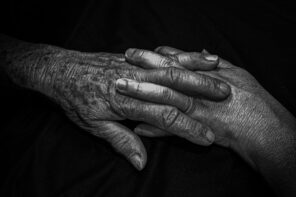
On November 13, approximately 50 students gathered in SSMU Lev Bukhman for the effort of getting McGill to pass a sexual assault policy for the first time in the university’s history.
The event was presided over by VP University Affairs Claire Stewart-Kanigan and several members of the student working group behind the initial draft of the policy. The working group held the event as an effort to provide students with information on the progress of the policy, as well as to garner feedback and give interested students the opportunity to join the movement.
The push for a university supported sexual assault policy was initiated following the controversial and highly-publicized case of three McGill football players who were charged with the sexual assault of a Concordia University student. Although the case has been ongoing for over a year, it was only last November that the Deputy Provost, Ollivier Dyens, made a formal commitment to expanding McGill’s use of proactive measures to address sexual assault on campus.
The student working group behind the policy has been collaborating with the Dean of Students, Andre Costopoulos and the Harm Reduction and Sexual Assault Response Coordinator, Bianca Tetrault, to draft the proposed policy. However, the group asserts that they are still looking for consultation, ideas and suggestions from the wider McGill community and non-student groups, to form a full-fledged policy that effectively addresses the needs of sexual assault survivors at McGill.
The initial policy was drafted by members of SSMU, the Union for Gender Empowerment (UGE), the Sexual Assault Centre of the McGill Students’ Society (SACOMSS), and the Quebec Public Interest Research Group at McGill (QPIRG McGill). The draft has since been endorsed by the SSMU Council, SSMU Equity Committee, the SSMU Executive, the Feminist Collective of McGill Law (FCML) and Women and the Criminal Law (WCL), all of whom have adopted status as signing parties of the proposal.
A Pro-Survivor Approach
One of the primary objectives of the proposed policy is that it intends to take a pro-survivor stance when dealing with sexual assault cases affecting students at McGill. As stated in Article 3.4.1 of the current draft, “The University recognizes the right of survivors to define and articulate their own diverse experiences, and is committed to respecting the survivor’s self-identification in the context of support and disciplinary proceedings to the degree of possibility.”
The policy also takes a consent-based definition of sexual assault, and defines consent as “an affirmative decision to engage in mutually agreed upon sexual activity and is given by clear words or actions.” Silence, passivity and lack of resistance alone are not considered to be consent, nor are particular sexual acts occurring in dating, marital or sexual relationships without affirmative consent. Acts occurring in the context of previous sexual activity between two individuals, consent to one form of sexual activity, any form of coercive action in a sexual encounter, drugs or medication, situations of power dynamics, and unconsciousness are also listed in the policy as non-consensual activities.
Still, there is an expectation for some pushback to the policy. “I think it would be naive of us to assume that everyone would agree with this policy, especially considering the viewpoint that we put forward is one that is very specific and very rigorously pro-survivor,” explained Kai O’Doherty, a member of the student working group and one of the speakers at the event. “We’re trying to elaborate on why we’re pro-survivor and where that comes from, and why some people’s concerns might not outweigh the need to make survivors feel comfortable to come forward and receive the support they need.”
“People definitely question whether the University is a place for a sexual assault policy, arguing that sexual assault should just be dealt with through the criminal justice system,” expressed Cecilia MacArthur, another member of the working group who spoke at the event. “I think that’s something we really want to emphasize, that not all survivors are comfortable going to the police, and that we want this policy to support them.”
Other mandates in the policy include the creation of an office under the Office of the Dean of Students with the implementation of a full-time Sexual Assault Response Coordinator (SARC) position. This individual is intended to be the primary resource-person for issues regarding sexual assault.
Cross-Campus Connections
The drafting of a formal policy comes at a time when sexual assault on university campuses across Canada and the United States has re-entered the media spotlight.
In Canada, several cases have been reported at schools across the nation, including Lakehead University, where a third-year student expressed claims that the university failed to provide her with help following an assault by a fellow classmate, and the University of Ottawa, where two hockey players were suspended last year and the entire hockey season was cancelled following charges of sexual assault at a hotel during a team trip to Thunder Bay.
Across the border in the United States, there have recently been several high-profile cases, including the efforts of Columbia student Emma Sulkowicz, who developed a performance art piece, “Carry That Weight,” as a form of protest against the fact that her rapist is still on campus. Sulkowicz, along with 22 other students from Columbia and Barnard College, has filed a Title IX complaint against the institutions, claiming they mishandled sexual assault cases.
On the West Coast, meanwhile, the state of California recently implemented a “Yes Means Yes” law, which defines consent on an affirmative basis for all post-secondary educational institutions receiving funding from the state. The law has been met with controversy and pushback, but similar measures have been pushed by the American government, with the publishing of a list of colleges and universities under investigation for violations of Title IX. The list includes Harvard, Princeton, and Berkeley, and every Ivy League school except Harvard has since implemented “affirmative consent” as the norm for sexual encounters on campus.
While some efforts have been made in the United States to dismantle rape culture and promote improvement in sexual assault policy, few Canadian schools have taken steps towards formulating formal sexual assault policies. By law, Canadian universities are not required to keep track of and disclose the number of sexual assaults reported on campus. While some schools have Bystander Intervention programs in effect, and many campuses have support services similar to SACOMSS and Mental Health Offices, there is an overwhelming consensus that the nation’s educational institutions fall short in tackling the issue of sexual assault and rape culture.
For the group behind McGill’s sexual assault policy, this deafening silence is one of the things they hope to combat with the introduction of this proposal.
“Sexual assault does happen. It happens in residences, it happens with students not in residences, it happens with people who aren’t students. It happens. And in terms of proof, there aren’t many high profile cases because it’s hard to come out as a survivor and support systems are typically confidential,” O’Doherty expressed. “There’s a reason SACOMSS exists. It exists because there is a problem for which there is a lack of support, such that students have made their own group to support survivors. And they’re very much running, very much doing a lot of work. So there’s definitely sexual assault that happens on campus, and it’s not talked about because of the nature of the problem, because of the nature of those who are affected by it, and also because of the lack of willingness for people to hear about it and for it to be something we talk about.”
An Implementation for Change
Although the process of drafting the sexual assault policy has been in the works for quite some time, the parties involved acknowledge that the timeline ahead may be long. Once the proposal is finalized, it will be brought to Senate to be voted on.
“There’s no way to really predict how long it will take to go through Senate,” explained MacArthur, “but we have talked about trying to get a policy that we’re happy with by the end of this scholastic year. We have been working with the administration, so I would say that this initial draft is something we are content with, but obviously we have very little student consultation. We’ve been working with a specific group of people from a couple of different student groups, so now is the time that we are opening it up.”
“Obviously, we want this to get to Senate as soon as possible, but we also want to make sure this is the most adequately consulted process possible,” O’Doherty added. “In the past we’ve said we want it implemented this year, but at this point our priority is to make sure we come forward with something we’re happy with.”
Although the proposed policy is very much student-focused and intended to attend to the needs of survivors at McGill, the student working group hopes to garner both consultation and support from non-student groups on campus. Once the process of passing the policy through Senate is complete, the group will work closely with McGill administration to draft an Implementation Guide that will outline specific details regarding procedure and discipline, among other things.
While collaboration with McGill has improved, it seems there is still more to do, particularly with regards to the university continuing to show an active investment in promoting a safer space for survivors of sexual assault.
“I would say it would be a gross overestimation that McGill has changed its view and is now doing incredible things for survivors. I think that Andre has been working with us really hard, and the hiring of Bianca is really important she has been doing great work, so I think that those two specific people have been working with us,” O’Doherty concluded. “In terms of greater McGill, we don’t really have a gauge yet, to be honest […] We’re going to have to prove to them that rape culture exists, we’re going to have to prove that survivors exist, we’re going to have to prove to them that this policy is useful, and then we’re going to have to get them to pass it. And I don’t think that’s going to be an easy process.”
If you have experienced sexual assault, student resources on campus are available. The Bull & Bear encourages all survivors and their allies to reach out to SACOMSS. For support and more information on SACOMSS’ services, call 514-398-8500, drop in to the Centre or visit www.sacomss.org.
If you are interested in learning more about the proposed policy, or would like to get involved with the process of passing a sexual assault policy at McGill, you can visit http://sexualassaultpolicyatmcgill.com.







